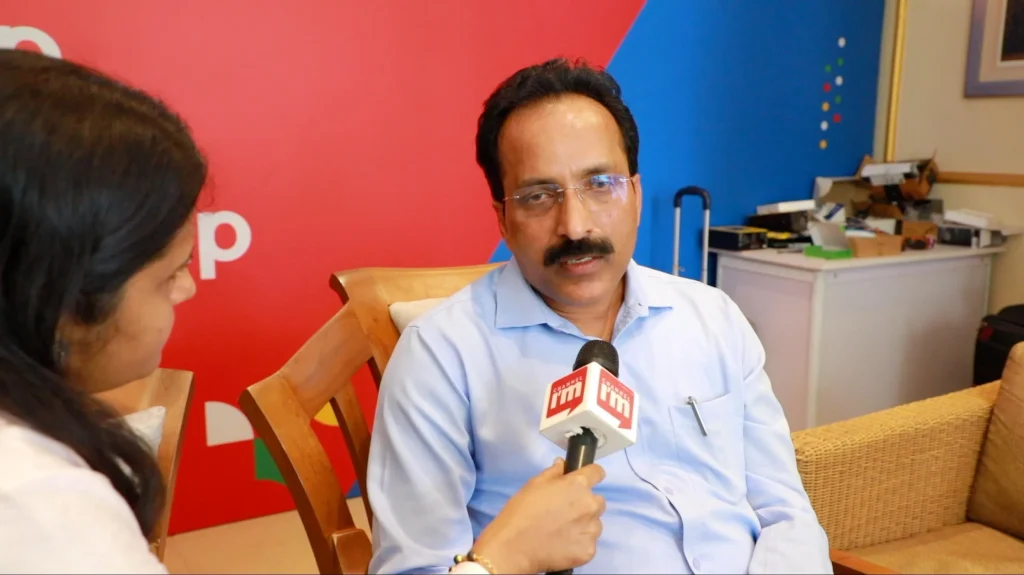In an exclusive interview with Channeliam’s founder Nisha Krishnan, ISRO Chairman Dr. S. Somanath shared insights on India’s growing prominence in the global space sector. Speaking at Huddle Global 2024, Somanath elaborated on ISRO’s journey, the future of India’s space exploration, and the evolving role of private players in the sector.

ISRO’s Unique Approach to Space Exploration
When asked what makes ISRO stand out as one of the most trusted and rapidly growing space agencies globally, Dr. Somanath explained, “We have always focused on creating capabilities that make us more independent and self-reliant. The technologies we have developed over the years are not just for research, but for tangible applications that benefit the nation.”
He emphasized that ISRO’s success lies in its ability to deliver high-impact missions while working within a controlled budget, ensuring efficiency without waste. This approach, he believes, has made ISRO respected globally, with notable successes such as the Chandrayaan-3 mission to the Moon and the Mars Orbiter Mission (Mangalyaan). “In the last six years, we’ve created end-to-end capabilities, which now position India as a significant player in the global space sector,” he said.
Scaling Up with Private Industry Support
While ISRO has established itself as a technological powerhouse, Somanath pointed out that the future lies in collaboration with private industries. “In the past, we focused mainly on research and development. But now, we are engaging more with startups, investors, and industry leaders. This is crucial for scaling up our capabilities and creating economic value from space technology.”

The Chairman highlighted the importance of turning technological achievements into sustainable business ventures. “It’s not just about technology; it’s about creating jobs, revenues, and profitability. We need a business sense in the space sector to drive growth,” he added.
SpaceX and the Role of Private Companies
When asked about SpaceX’s dominance in the global space industry, Somanath acknowledged the role of private companies in the U.S. ecosystem, particularly under the leadership of Elon Musk. “There’s nothing wrong in what SpaceX is doing, but it’s a unique phenomenon that’s been largely confined to the U.S.,” he remarked. “Historically, companies like Lockheed Martin, Boeing, and McDonnell Douglas were the giants of the aerospace industry, but they didn’t have a single figure leading the way as Musk does with SpaceX.”
He noted that while the U.S. has seen a boom in private space ventures, India is taking a more inclusive approach, involving both public and private sectors in space exploration. This shift, he believes, will drive India’s ambitions forward.
Chandrayaan-3: A Game-Changer for India’s Space Aspirations
One of the defining moments in India’s space journey, according to Somanath, was the success of Chandrayaan-3. “Chandrayaan-3 truly changed the narrative. It showcased our ability to achieve high-tech space missions at a low cost, and we engineered the entire mission in India without much global support,” he explained.

The mission not only demonstrated ISRO’s technical prowess but also ignited a sense of pride and inspiration among India’s youth. “Chandrayaan-3 has raised the bar for us, and it has set high expectations for the future. We now have to channel this energy into building more opportunities for young people to participate in space activities,” he added.
Private Sector in India’s Space Future
Somanath also addressed the growing role of private players in India’s space sector, especially with the establishment of IN-SPACe (Indian National Space Promotion and Authorization Center). “The private ecosystem has been evolving for over a decade, but it was only with the creation of IN-SPACe and the new space policy that we could provide a structured support system,” he said.
He sees immense potential for Indian space startups, particularly in the application of space technology. “The real business opportunities lie in space applications. As more companies develop space-based solutions, we will see a rise in demand for rockets and satellites, which will further fuel the growth of the industry.”

A Vision for India’s Space Ecosystem
Dr. Somanath’s vision for India’s space future is clear: a thriving, prosperous space economy that not only drives scientific innovation but also creates substantial economic activity. “While missions that make headlines, like Chandrayaan and Mangalyaan, are crucial, we must also focus on how space technology can support business ecosystems and contribute to India’s economic growth,” he concluded.
As India continues to make strides in space exploration, ISRO’s focus on self-reliance, collaboration with the private sector, and fostering innovation in space applications could position India as a key player in the global space race for years to come.
